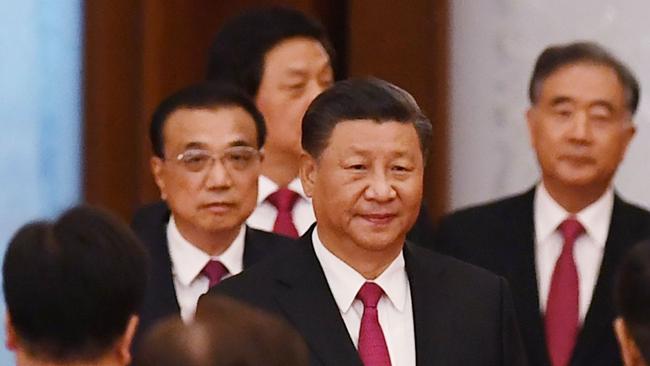If Australia declines it will be by choice, not chance

Then a Chinese government official stated that “China is angry. If you make China the enemy, China will be the enemy”. This followed recent Chinese government trade-related injunctions on Australian exports.
Following that, former Australian ambassador to China Geoff Raby suggested the Foreign Minister “should drop some positive remark about China into a speech” and allow the diplomatic service to use its dark arts to smooth relations. Then Australian Prime Minister Scott Morrison does drop some positive remarks in a speech and an adviser to Chinese Premier Li Keqiang comments that “China noticed the goodwill Australia expressed supporting China”.
This is not the opening of a spy thriller but a real-time demonstration of Australia’s growing challenge in managing its core security and economic dilemma; that our largest trading partner, China, is a geostrategic competitor of our key security ally, America.
Unfortunately, the difficulty in managing this dilemma is only going to increase for Australian national security advisers and planners.
National security is not just about military and defence. It also includes economic, food, energy and cyber security. As should be increasingly apparent, key dimensions of Australia’s security and economic prosperity are closely tied to an increasingly assertive China willing to throw its weight around. The diplomatic dance witnessed this month is but a sign of what may come.
Australia is a highly trade-exposed, capital-importing nation. Australia is a net exporter of energy, principally through coal, but we are also a significant net importer of processed fuels — fuels that power not just our cars, trucks and tractors but also diesel submarines and military jets. Australia’s clean-energy future is predicated upon large imports of solar panels and wind turbines.
Our security and our standard of living are highly dependent upon a well-functioning international trading system and sea lanes permitting freedom of navigation. Economically, Australia is particularly exposed to trade with China and there is a significant asymmetry in the relationship.
According to the IMF, China is the world’s largest economy, 16 per cent larger than the US economy. China is also the largest trading partner of almost every major nation.
For Australia, more than 25 per cent of exports are sold to China. This includes 100 per cent of nickel ore, 83 per cent of iron ore, 95 per cent of timber and 77 per cent of wool exports. In 2019 alone, Australian exports to China were worth $169bn.
Conversely, only 2 per cent of Chinese exports are to Australia, and this includes 90 per cent of Australia’s merchandise imports. This imbalance gives China a particularly powerful leverage over Australia. This trade asymmetry highlights the greater geostrategic vulnerability for Australia, a vulnerability that will require a level of public policy innovation and courage Australia has not seen since the 1980s. Without public policy courage, Australia risks becoming a modern-day Nauru.
In 1982, Nauru was the wealthiest country in the world on a per-capita basis. Today it is one of the poorest and reliant upon foreign aid and refugee management income.
Nauru’s wealth came from the export of phosphate, and the prosperity was squandered. Schooling, medical and dental care were provided free by the government. Government-built housing was rented at the time at $4.30 per month. Most food was imported.
Nauruans did not pay tax and founding president Hammer DeRoburt declared that “taxation is unsuited to the Nauruan temperament’’. Labour was imported from nearby nations to perform the work the locals were unwilling to.
History is replete with examples of the decline of once prosperous nations. Their decline was almost universally a matter of choice and not a matter of chance.
The benefits to Australia of China’s economic rise have masked Australia’s reform sclerosis. With taxation rivers coming from commodity exports, Australia’s political leaders have been absolved from making difficult decisions because our standard of living has continued to improve and our economy has continued to grow. This despite our ageing population and declining education outcomes.
COVID-19 has confirmed that the regional power shift has commenced with America’s instability and China’s assertiveness.
Canberra, it’s your move.
Dimitri Burshtein is a Sydney-based former NSW Treasury policy analyst who works in Asian commodity financial markets.



Earlier this month, an unofficial statement emerged from the Chinese embassy in Canberra accusing the Australian government of “poisoning bilateral relations”.